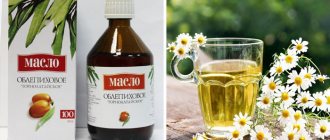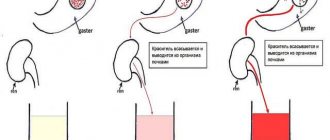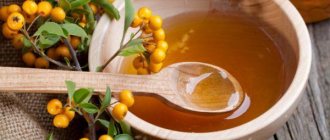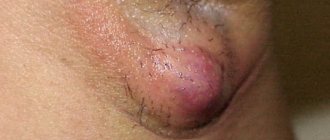Hardening
It is better to carry it out from childhood. A child’s immune system quickly gets used to environmental changes. You need to get used to cool water gradually. First, the water temperature should be 30-35ºС. Each time it is made colder by one degree to 20-25.
Diet
It is necessary to exclude from the diet: spices, seasonings, sour and salty foods, cocoa, alcohol, fish and meat broths. Drink up to 2 liters of liquid per day. It is better to boil or steam food. Recommended Products:
- rabbit meat, poultry,
- dairy products,
- vegetable and butter,
- watermelons, melons, apricots,
- raisins, currants,
- potatoes, eggplants, pumpkin, cucumbers, carrots,
- Parsley.
Treatment with millet
It relieves inflammation and has a urinary effect, and is also able to change the acidity in the urine and remove excess salt. Medicines based on this cereal:
- take 2 tbsp. l. cereals, pour 400 ml of hot water and bring to a boil. Pour the resulting broth into a bowl. The first day drink 1 tbsp every hour. l., on the second day - three spoons, then - half a glass before meals,
- 1 tbsp. l. pour 200 ml of hot water over the cereal and cook for 5 minutes. Leave for two hours. Drink 1/3 glass half an hour before meals.
Uses of Pumpkin Seed
It is saturated with useful microelements and substances. You can prepare a compress based on it. To do this, crush 100 grams of the seed with water and apply it to the lower back for about half an hour.
Chamomile
Chamomile is a valuable plant that is rich in various beneficial substances. There are many folk recipes using it. Chamomile is used not only during exacerbation of the disease, but also for prevention. Among the beneficial components found in it are: choline, essential oil, salicylic acid, fatty acids, flavonoids. The use of Chamomile entails few negative consequences; it is prescribed to both adults and children. However, it is contraindicated for pregnant women, as it has the property of increasing the production of hormones, which can provoke the threat of miscarriage.
For kidney inflammation, drink chamomile tea: put 1 tablespoon of flowers in a mug of boiling water, cover and keep for 20-30 minutes. Drink 25 ml three times a day before meals. In the case of chronic pyelonephritis, the following composition is taken: birch leaves, St. John's wort, marshmallow, fireweed, flowers of clover, calendula, chamomile. Mix everything in equal proportions. Place 2 tablespoons of this mixture in a thermos and add 500 ml of hot water, close tightly and keep for two hours. Use the tincture 4 times a day before meals. The course of admission is 90 days. As a preventive measure, Chamomile can be used as follows:
- after hypothermia, drink a decoction of chamomile with honey for a week.
- drink chamomile tea for two weeks with a break of 1 month.
What is the role of herbal medicine during periods of treatment of pyelonephritis?
Before talking about the treatment of pyelonephritis with folk remedies, it is necessary to clarify the fact that during this period in acute forms it is recommended to be in a hospital setting, but not everyone can afford this.
It is in such cases that it is customary to turn to remedies whose effectiveness has been proven over the years, that is, to traditional medicine. Typically people at home use the following products:
- Using a warming bandage and compress;
- Healing with juice, in particular, viburnum, rowan and sea buckthorn, cranberry juice;
- Using any effective infusion, decoction, medicinal herb or plant.
It is the period of use of herbal medicine that includes the use of a medicinal plant with diuretic, tonic and antimicrobial effectiveness.
Advantages of using herbal medicine:
- Reducing the inflammatory process in the kidneys. This occurs due to the unique composition of such products, which contain those elements that contribute to the destruction of pathogenic flora, providing a uroseptic effect;
- Cleansing the body of toxins and any waste product of a pathogenic microorganism that is excreted through urine;
- Strengthening the body, increasing immunity, which is carried out by containing a huge amount of vitamins and minerals in any herbal infusion.
Herbal medicine is considered the most suitable option for a speedy recovery.
Before you start taking herbal infusions and preparations on your own, be sure to consider the following:
- Start using any herbal infusion only with the permission of the doctor;
- The composition of the infusion or tea must be of high quality and environmentally friendly;
- The absence of any allergic reactions to a particular herb that the patient uses during his treatment;
- Compliance with the dose, with careful monitoring of the body’s reactions;
- Stop using herbs or infusions if side effects are detected;
- Particular importance should also be given to the fact that herbal medicine for pyelonephritis is closed for use by those people who have a tendency to edema.
Cowberry
In order to prepare a remedy, you can use both berries and leaves. The most common diuretic that helps remove pathogenic bacteria and creates a favorable environment in the urinary organs. You can make an infusion from lingonberry leaves, for the preparation of which you will need:
- Take 10 g of lingonberry leaf.
- Pour 200 ml of boiling water over the leaves.
- Leave for 2-3 hours covered.
- Drink a glass 2 times a day for one week.
You can make juice from the berries of the plant. To do this you need:
- Squeeze 50 ml of juice from the berries.
- Mix the juice with a teaspoon of honey.
- Drink 2 times a day 30 minutes before meals and continue drinking for half a month.
General provisions
Any medicinal herbs are, first of all, medicines. For truly medicinal products (and not dummies), the possibility of developing side effects and overdose is typical. Therefore, the statement “...you can heal with herbs, without any chemicals...”, to put it mildly, is incorrect . All plants contain complex chemical compounds. Many medicines were discovered through the study of the surrounding flora. The ancient rule still remains true: “Everything is poison, and everything is medicine. Only the dose determines.”
For herbal medicine side effects are most often individual intolerance and allergic reactions. In addition, some plants are poisonous.
The advantage of the herbs of the modern pharmacopoeia is that their use has been tested for more than a dozen generations. It is unlikely that nature specifically cultivated living medicines under the sun. One way or another, humans and plants have adapted and influenced each other over thousands of years. Modern science does not know everything about the mechanisms of diseases and their treatment.
A herbal medicine is not just one medicine (monocomponent drug), but a complex multifaceted one with multi-level interaction. Specific recommendations have been developed (indicated in the annotations for the product), established through experience and research.
Several dozen plants have been described that have a positive effect on kidney function. As an example, the following recommendations have a beneficial effect on pyelonephritis:
| Name. Characteristics | Therapeutic effect | Example of possible recipes |
| Lingonberry leaves Lingonberry is a creeping evergreen shrub with small, ellipsoid, leathery leaves. Grows in coniferous forests and peat bogs. The leaves contain aldehydes, tannins, vitamin C, ursolic acid. Harvested during flowering (May or June). | Mild diuretic, hemostatic, antiseptic, diuretic, tonic, antipyretic | Pour 1 tablespoon of the product with boiling water (50-100 ml). Then let it brew for about half an hour. Take 50 ml orally up to 3 times a day. Usually the duration of treatment is up to 1-4 weeks. |
| Corn silk Corn is an annual, artificially cultivated plant. It is a thread-like column on the cob, with stigmas. Harvested in July - August. Contains: sitosterol, essential and fatty oils, pantothenic acid, vitamins C and K, resinous substances, inositol. | Moderate diuretic, hemostatic (accelerate blood clotting), anti-inflammatory. | Take 2 tablespoons of the crushed product, pour 100-200 ml of boiling water, leave for about 1 hour, then strain. You can drink 50 ml 4-3 times a day. Duration of treatment is up to 1-2 weeks. |
| Herb St. John's wort is a perennial and herbaceous plant. Harvested during flowering (June or July). Contains: tannins, flavonoids, carotene, nicotinic acid, phytoncides, ceryl alcohol, carotene, vitamins C and PP, traces of alkaloids. | Astringent, hemostatic, anti-inflammatory, analgesic, antimicrobial, diuretic. Promotes regeneration. | Grind, pour 1 tablespoon of raw material into 100-200 ml of boiling water, boil for about 5 minutes, then leave for 1 hour, strain. It is recommended to take 50 ml up to 2-4 times a day. Duration up to 5-7 days. |
| Bearberry Leaves An evergreen shrub with oblong, leathery leaves on short petioles. Grows in coniferous forests with moss cover. Harvested during flowering - May or June. Contains: glycosides, tannins, acids. | Antimicrobial (for alkalinization of urine) | Take 30 grams of leaves and chop. Boil in 500 ml of water for 5-7 minutes, leave for about 30 minutes, strain. Take 50-70 ml orally up to 3 times a day. Duration - up to 1-4 weeks. Not recommended for pregnant women. |
| The fruit of anise is an annual herb with leaves of various shapes. Prepared in the fall. Contains: essential oils, anisealdehyde, proteins, sugars, mineral salts. | Moderate diuretic, anti-inflammatory, antimicrobial, antispasmodic. | Take 1 teaspoon per 200 ml of water, take 1/4-1/2 cup 3 times a day before meals. |
| Leaves of Siberian elderberry (black) Tall shrub, has odd-pinnate leaves (with 5-7 oblong leaves). Harvested in spring during flowering. Contains: sambunigrin, carotene, aldehydes, vitamin C, essential oil. | Diuretic, laxative, antipyretic (diaphoretic), and detoxifying. | Take 1 tablespoon of pre-crushed product, pour 100-200 ml of boiling water, boil for about 5 minutes, strain. Take orally in the amount of 1 tablespoon 3 times a day, 1-4 weeks. |
| Juniper berries An evergreen tall shrub with linear, rigid subulate leaves. The berry is small, fleshy with three seeds. Harvesting - in October November. Contains: resin, sugar, wax, acids (acetic, malic, formic), pectin, camphene, vitamin C. | Weak diuretic, has antimicrobial, anti-inflammatory and analgesic effects. | Take 10 grams of raw material, add up to 200 ml of water, let it brew. Take orally up to 3-4 times a day, for up to 2 weeks. |
| Berries, cloudberry leaves. Perennial herbaceous plant with rounded five-lobed leaves. Grows in peat bogs. The fruit is a drupe, orange-yellow. Harvested: leaves - during flowering, fruits - in autumn. Contains: acids, sugars, tannins, vitamin C. | Berries are diuretic, antipyretic, anti-inflammatory. Leaves - astringent, hemostatic, detoxifying, diuretic, anti-inflammatory, regenerative. | Take 1-2 teaspoons of raw material, add boiling water (up to 100-200 ml), let it brew. Take orally (as tea) 2-4 times a day. Duration - up to 1-2 weeks. |
| Rhizomes of common calamus A perennial brownish-green herb with a strong pleasant odor, it has a long, creeping rhizome. It is harvested in the fall, at the beginning of winter. Contains: essential oil, acorin, tannins. | Weak diuretic, anti-inflammatory. Hypotensive, analgesic, antimicrobial. | Take 1 teaspoon of crushed raw materials, pour boiling water, leave for about 30 minutes, strain thoroughly. Take orally up to 4 times a day. Duration up to 5-7 days. |
| Leaves and flowers of bedstraw A perennial plant, narrow-linear, with dark green leaves and a honey smell. Contains aspruloside. Harvested during flowering (June, July). | Diuretic, hemostatic, detoxifying, weak analgesic, improves tissue regeneration, sedative. | Take 1-2 teaspoons of raw material, brew 100-200 ml of boiling water, leave. Take 10-50 ml orally up to 2-4 times a day. Duration up to 1 week. |
| Horsetail grass A perennial plant with jointed, green ribbed shoots. Harvested in July and August. Contains: equisetonin, acids, proteins, alkaloids, fatty oils, mineral salts, carotene, vitamin C, bitterness. | Diuretic, reduces the amount of protein in urine, anti-inflammatory, accelerates tissue regeneration, hemostatic, antimicrobial. | Take 4 teaspoons of crushed raw materials, pour 500 ml of boiling water, leave for 2 hours. Drink 30-50 ml 3 times a day for up to 1-2 weeks. Not recommended for children and pregnant women. |
There are other recommendations and modes of application. For example, consumption in food and in the form of juices is allowed: watermelon, pumpkin. You can take several herbs at the same time as part of the collection. It is necessary to remember about a possible general side effect - individual intolerance to the components of the drug.
Examples of official fees
| Name. Compound | Indications. Action. Contraindications. Dosage. | |
| Urolesan (25 ml, drops) | ||
| hop cone extract | 33 g | It is used for urolithiasis, acute and chronic calculous pyelonephritis, if there is no complete occlusion. It has an antispasmodic effect and improves the passage of ureteral stones, reduces inflammation. Contraindications: heartburn, diarrhea, age under 18 years. Take 8-10 drops orally per day (for severe pain in the kidney area - 15-20 drops) before meals. The total duration of treatment is from 5-7 days to 1 month. |
| Oregano vulgare herb extract | 23 g | |
| wild carrot seed extract | 23 g | |
| castor oil | 11 g | |
| fir oil | 8 g | |
| peppermint oil | 2 g | |
| Uroflux (25 g, sachet) | ||
| cereal rhizomes | 9 g | It is used for acute and chronic calculous pyelonephritis, without complete occlusion. It has antispasmodic, anti-inflammatory, antimicrobial effects, enhances diuresis, increases the excretion of urea, and shifts the pH of urine to the acidic side. Contraindications: Severe cardiovascular insufficiency. Edema. Drink 1 cup of tea 3–5 times a day; one teaspoon of tea is poured with hot water and stirred. Take up to 2-3 weeks. |
| birch leaves | 9 g | |
| bearberry leaves | 6 g | |
| horsetail herb | 3 g | |
| goldenrod grass | 6 g | |
| willow bark | 3 g | |
| licorice root | 2 g | |
| stelnik root | 2.5 g | |
| rudbeckia root | 1.5 g | |
| Canephron (100 ml bottle, hydroalcoholic extract 29g) | ||
| centaury grass | 0.6 g | Indications: chronic urinary tract infections; prevention of urolithiasis, incl. after removal of stones. Action: antimicrobial, anti-inflammatory, antispasmodic, diuretic. Contraindications: peptic ulcer of the stomach and duodenum in the stage of severe exacerbation; early childhood; alcoholism, incl. after anti-alcohol treatment; lactase enzyme deficiency, lactose intolerance. Application: 50 drops 3 times a day, up to 1-2 weeks. After the severity of the disease has subsided, treatment with the drug for 2–4 weeks. Drink plenty of fluids at the same time. |
| rosemary leaves | 0.6 g | |
| lovage medicinal roots | 0.6 g | |
| Phytolysin (100 g paste) | ||
| wheatgrass rhizomes | 12.5 g | Indications: nephrourolithiasis, urinary tract infections, prevention of crystallization of salts in the urine. Contraindications: nephrosis, glomerulonephritis, phosphate nephrolithiasis. Dosage: Take orally, dilute 1 teaspoon of paste in 0.5 glasses of water. Can be taken by adults up to 4 times a day after meals; children: 1/4–1/2 teaspoon up to 3 times a day. The total duration is up to 2-3 weeks. |
| onion bulb extract | 10 g | |
| birch leaves | 5 g | |
| parsley fruits | 17.5 g | |
| fenugreek seeds | 17.5 g | |
| knotweed grass | 15 g | |
| hernia grass | 7.5 g | |
| horsetail herb | 10 g | |
| goldenrod grass | 5 g | |
| essential oils: orange, sage, pine and mint | ||
Scope of herbal medicine : anti-relapse treatment and combination with medication (pharmacotherapy) as prescribed by a doctor.
Cranberry
Cranberries are popular in the treatment of various kidney diseases. It contains a large amount of ascorbic and folic acid, which restore their normal functioning. Fruit juice is prepared from it. To prepare it you need:
- Take one glass of berries and mash with a wooden masher.
- Drain the liquid.
- Pour the cake with one liter of water and boil for five minutes.
- Pour in juice and 1 tbsp. l. honey
- Drink 200 ml per day.
Fruit drinks can be consumed during pregnancy.
Folk remedies
Treatment with folk remedies for pyelonephritis is carried out using herbal remedies. Among them, the most common are considered to be:
- spreading cornflower;
- juices (viburnum, birch, watermelon, blueberry, cabbage, pumpkin);
- hibiscus tea;
- bearberry;
- centaury;
- lovage;
- renal fees.
The use of herbal remedies requires consultation with a herbalist. It is impossible to choose a treatment regimen on your own; the severity of the disease, the presence of concomitant pathologies, and the individual characteristics of the body are taken into account.
Herbal treatment is used in some countries. Not popular, but older people often turn to these methods.
The best option would be a combination of traditional medicine with herbal preparations. With this treatment, the etiological factor will be eliminated and the restoration of the affected organ will begin.
Treatment of chronic pyelonephritis with folk remedies is more effective than the acute form of manifestation.
Spreading cornflower
Spreading cornflower (or Harlay grass) is a herbaceous plant that is used by doctors to treat pathologies of the urinary system.
The plant is also called "camelweed" or "splayweed". It is considered a weed plant.
Treatment of pyelonephritis at home in the chronic form is carried out with the help of "Spreading cornflower". This remedy is suitable for relieving exacerbations.
It has an analgesic, diuretic and antimicrobial effect. The course of treatment with splay does not exceed 30 days. Only with this duration of therapy can complete recovery be achieved.
To prepare this decoction, take a pinch of dry herb (4-5 g), pour a glass of cold water and put on fire.
After boiling, keep on fire for 2 minutes, infuse the resulting solution for at least half an hour. Next, the decoction is filtered to avoid further release of biological substances from the herb.
Take this decoction at least three times a day, 1 glass. You need to drink the decoction before eating - 10-15 minutes.
If you do not follow the recommendation, the medicine will be mixed with food, and the amount entering the bloodstream will decrease.
Spreading cornflower is not recommended for use during pregnancy and lactation, as the herb contains additional impurities that affect the fetus or baby.
Hibiscus tea
The purpose for which hibiscus tea is used in the treatment of pyelonephritis is to increase urine production. This tea is made from hibiscus (Sudanese rose), which has a diuretic effect.
Drink hibiscus up to 8 times a day. Taking this medication is not associated with food intake. This tea can be used as a prophylactic.
Hibiscus tea has a diuretic effect and is a natural source of vitamins, which is extremely important for the prevention of bacterial diseases; vitamins are the main substances necessary for the normal functioning of the immune system.
Hibiscus has no contraindications for use, except for individual sensitivity. Allergy to hibiscus is extremely rare.
If skin itching or rashes appear after drinking the tea, you should stop taking it immediately.
Hibiscus contains a large amount of antioxidants, which accelerates the removal of metabolic products and bacterial activity from tissues, and also stimulates the regenerative ability of cells and tissues.
The use of such folk remedies for pyelonephritis is indicated in cases where there are no signs of renal failure.
Juice therapy
The juices of some plants and berries are used in the folk treatment of bacterial diseases. The composition contains organic acids that have an antimicrobial effect.
Most juices have a diuretic effect, which is important for the treatment of pathologies of the urinary system.
Juices that are used for pyelonephritis:
- cranberry;
- watermelon;
- cabbage;
- pumpkin;
- bilberry.
Juices from sour berries and vegetables are prohibited from being taken by patients with peptic ulcers and inflammatory diseases of the digestive system.
This causes exacerbation of diseases or the development of dangerous complications, such as bleeding or perforation.
Juices are taken several times a day, half a glass. The exception is watermelon juice, which has no contraindications and is used to ensure increased urine production.
This juice has a neutral pH and does not pose a threat to the mucous membrane of the digestive tract. Berries and vegetables contain vitamins, which speeds up recovery.
It is allowed to eat whole berries and vegetables. The disadvantage of treatment is that more berries are required per dose than pure juice.
The main disadvantage of juice treatment is allergic reactions; they contain a large amount of organic substances.
Bearberry
Bearberry is a medicinal plant that is often used for self-therapy of diseases of the urogenital complex. Infusions and decoctions from the plant have analgesic and anti-inflammatory effects.
The disadvantage of using bearberry is that it is prescribed to patients under 12 years of age and to women during pregnancy and breastfeeding.
Bearberry is used for complete treatment or as a component of special kidney preparations.
To prepare an infusion or decoction, take a tablespoon of dry matter and a glass of water, bring to a boil and cook for at least 5 minutes. Take this solution half a glass before meals 4-5 times a day.
centaury
Centaury is an ancient medicinal plant, which was mentioned by healers of Ancient Greece and doctors of the Middle Ages.
The herb is used by doctors to eliminate bacteria, inflammation and spasms. These therapeutic effects are important in the treatment of pyelonephritis; bacteria are the etiological factor, and spasm and inflammation accompany this pathology.
Centaury is used as a component of complex herbal medicines, such as Canephron.
Centaury can be used as infusions and decoctions. But in such a situation, the therapeutic effect will not be enough to completely eliminate the problem - the use of additional drugs or traditional medicine will be required.
To prepare the infusion, take at least 10 g of dry raw materials per 1 liter of water. This mixture needs to be brought to a boil and cooled, strained - ready for use.
Take centaury infusion 2 tablespoons 5 times a day. It is desirable that the interval between doses be the same - this will help maintain the concentration of centaury bitter substances in the body at a constant level, which is extremely important for fighting bacteria.
Herbal medicine for pyelonephritis is a popular treatment, as every year the number of people with a negative attitude towards traditional medicine increases.
Lovage
Lovage roots are an official medicine, decoctions and infusions of which have antispasmodic and diuretic effects. This plant is used in complex therapy or is part of kidney preparations.
Already half an hour after taking the infusion, patients experience an improvement in their condition and normalization of urine output.
The last therapeutic effect of using lovage infusion is considered important for the treatment of pyelonephritis.
Relieving spasm from the perinephric areas of the ureter and inflammation from the kidney tissue helps improve the outflow of urine, which is noticeable due to the diuretic effect.
Kidney fees
There are special kidney preparations that contain herbs, roots or leaves of plants with the following therapeutic effects:
- diuretic;
- antimicrobial;
- anti-inflammatory;
- restorative;
- painkiller.
The composition of the fees differs, which determines the contraindications for use. Herbs for pyelonephritis are often used in the form of herbs, which ensures the elimination of several symptoms and causes at once.
Treatment of pyelonephritis with herbs is indicated in cases where prevention of exacerbations of the chronic form is required.
Folk remedies for the treatment of pyelonephritis are suitable only for auxiliary treatment.
It is not recommended to use it as primary therapy, since the healing effects are weak and require long-term treatment. During this period, the infection can become chronic or cause complications.
Rose hip
Rosehip is rich in vitamin C. It is used as a strengthening and tonic. It also helps remove harmful toxins. It dissolves kidney stones. You can make a drink from the berries of this plant:
- Take three tablespoons of berries and pour 300 ml of boiling water.
- Keep in a tightly closed container for three hours.
- Drink 100 ml three times a day.
Rosehip is not advisable to use for stomach diseases. With prolonged use, it flushes calcium from the body.
The use of folk remedies will speed up the healing process, strengthen the body and serve as good prevention. However, complex treatment using medications is necessary. Before using any folk method for home treatment, consultation with a doctor is required.
Alternative medicine does not replace official medicine, but in some situations its methods are accepted by doctors as auxiliary. How is kidney pyelonephritis treated with folk remedies?
Indications for use
Medicines based on medicinal plants are considered folk medicines. Their collection and processing require certain skills. Former grandmother's remedies have become pharmacopoeial, occupying the shelves of pharmacies under the name of herbal remedies.
Some of them are produced in the form of capsules, extracts, or pills. Others are intended for the preparation of infusions and decoctions, the recipe for which is in the attached instructions. Folk remedies are prescribed by urologists for chronic pyelonephritis, when the use of potent medications is not indicated.
Classification
Like other medicines, herbal medicines according to their pharmacological action are divided into the following groups:
- Antimicrobial.
- Antiphlogistic.
- Detoxification.
- Biostimulants.
Antimicrobials
Among the herbal medicines used in the treatment of pyelonephritis and having bactericidal properties, the following are distinguished:
- Brusniver.
- St. John's wort.
- Bearberry.
Herbs for pyelonephritis
Brusniver
The composition of the herbal medicine intended for making the infusion includes the following components:
- Lingonberry leaves.
- Rosehip fruits.
- Herb string and St. John's wort.
St. John's wort
The herbal medicine is produced in herbal cuttings, powder, filter bags, and tablets. Medicines are made from the plant in the form of an extract. The folk remedy is universal and is indicated for use in many diseases.
Bearberry
The leaf preparation is produced in crushed form or in filter bags. Decoctions and infusions are prepared from them, or consumed in the form of tea.
Anti-inflammatory drugs
Traditional treatment of kidney pyelonephritis involves the use of the following herbal remedies that have antiphlogistic properties:
- Phytolysin.
- Canephron.
Phytolysin
It is an extract of medicinal herbs prepared in the form of a paste. It has antiphlogistic, antispasmodic, diuretic effects. Prevents the formation of stones. In addition to the treatment of pyelonephritis, the drug is used for urolithiasis, as well as inflammation of the bladder.
Canephron
The product is a collection of medicinal herbs produced in solution or dragee. Effectively relieves pain symptoms. Used to prevent exacerbations of pyelonephritis and cystitis.
Detoxification products
The main detoxification technique is the accelerated elimination of toxic metabolites in the urine. Therefore, use the following decoctions or infusions of herbs, or mixtures thereof:
- Chamomile.
- Fennel.
- Calendula.
- Knotweed.
- Peppermint.
Diet for kidney pyelonephritis
Biostimulants
Folk remedies for kidney pyelonephritis include the following plants that have the properties of stimulating the body's defense systems. Decoctions, infusions, juices, as well as fresh fruits of the following plants are shown:
- Eleutherococcus.
- Ginseng.
- Schisandra.
- Cranberries.
- Sea buckthorn.
Side effects and contraindications
Drugs that have a medicinal effect can cause harm if used incorrectly. Before taking them, you must study the instructions, which report the following undesirable effects:
- Regurgitation.
- Diarrhea.
- Hives.
- Nausea, vomiting.
- Exacerbation of the disease.
Some herbal remedies have contraindications for use under the following circumstances:
- Intolerance to the components of the drug.
- Breast-feeding.
- Pregnancy.
- Age restrictions.
Conclusion
Folk remedies are auxiliary drugs in the treatment of chronic pyelonephritis under the supervision of a urologist. You should not take risks by using them yourself. Many drugs, especially the most effective ones, have contraindications.
Related posts:
Herbs for pyelonephritis
Diet for kidney pyelonephritis
Pyelonephritis: symptoms, diagnosis and treatment
When the lower back hurts, they most often think that the cause is the spine or kidneys. Today we will talk about one of the kidney diseases.
The topic of our article today is pyelonephritis. What is characteristic of this disease? Why, if left unattended, is it fraught with the development of formidable, sometimes life-threatening, complications?
With these and other questions, we went to an appointment with the urologist at Clinic Expert Kursk LLC, Alexander Alexandrovich Devyatkin.
- Alexander Alexandrovich, what is hidden behind the diagnosis of “pyelonephritis” and how does this disease manifest itself?
This is a nonspecific infectious inflammatory process of the parenchyma and collecting system of the kidney - the pelvis and calyces.
Characteristic manifestations are the so-called classic triad: increased body temperature (usually to high levels in the evenings), pain in the lumbar region (usually on one side, but bilateral damage is possible), signs of inflammation in urine tests. Sometimes the symptoms of pyelonephritis may be mild or absent (in the case of an atypical course of the disease). This may be, for example, in patients with diabetes mellitus, elderly and senile people, with immunodeficiencies, in the phase of latent inflammation in chronic pyelonephritis and some other categories of patients.
There are acute and chronic courses of the disease. Chronic pyelonephritis can be in the phase of active inflammation (exacerbation; there are clinical manifestations and changes in urine tests), latent inflammation (no complaints, but there are signs of inflammation in urine tests) and remission. Acute inflammation can occur without a violation of the outflow of urine from the kidney - then we are talking about primary (non-obstructive) pyelonephritis; if the outflow of urine is disrupted, it is secondary (obstructive). According to the nature of inflammation of the kidney tissue, pyelonephritis can be serous and purulent. Its obstructive and purulent forms are treated exclusively in a hospital setting.
- Are the manifestations of pyelonephritis the same in men and women or are there differences?
Identical, no differences.
- Why does pyelonephritis occur? Are there groups of risk factors that contribute to the development of this disease?
The cause of pyelonephritis is a bacterial infection (most often, uropathogenic strains of Escherichia coli, enterococci, as well as Proteus and Klebsiella).
Routes of infection: ascending infection (often with cystitis); its transfer with blood or (occasionally) lymph from a lesion anywhere in the body.
A delicate problem: what you need to know about cystitis? Devyatkin Alexander Alexandrovich tells
Risk factors include:
disruption of the normal outflow of urine (blockage of the ureter with a stone, abnormal development of the urinary organs, obstruction of the urinary tract due to cicatricial narrowings, compression or germination by a tumor - for example, with benign hyperplasia or prostate cancer, prolapse of the pelvic organs in women); chronic inflammatory process in the bladder; the presence of infected calculi (stones) in the urinary tract; diabetes; the presence of foreign bodies (including urethral catheters, cysto- and nephrostomy drainages); immunosuppression and some others. In the development of pyelonephritis in pregnant women (gestational pyelonephritis), a decrease in the tone of the ureters and compression of them by the pregnant uterus plays a role.
Why are pregnant women prescribed MRI? Find out here
An interesting risk factor is the presence of piercings in the umbilical area. It is known that in the process of fetal development there is such an anatomical formation as the urachus. It connects the bladder and the navel, and is designed to drain primary urine into the amniotic fluid. As the child develops embryonicly, its lumen “overgrows” (obliterates), and it receives the name of the median umbilical ligament. In some people, the obliteration of the urachus is incomplete, i.e. there is a connection with the bladder. As a result of punctures in the navel area, a focus of irritation is created in the form of a foreign body, a long-existing open “gate of infection”, which sharply increases the likelihood of pathogens penetrating and entering the bladder. As a result, cystitis develops, and along with it often pyelonephritis, if the infection goes “up”.
- How is pyelonephritis diagnosed? What is included in the list of mandatory diagnostic examinations?
The patient is questioned in detail and examined in detail. After this, a preliminary diagnosis is made, which is confirmed/clarified using laboratory and instrumental research methods.
Laboratory tests include a general blood and urine test, a biochemical blood test, and urine culture to determine the causative microorganism and determine its sensitivity to antibacterial drugs.
Of the instrumental research methods, ultrasound of the bladder and kidneys is mandatory. According to indications: survey and excretory urography, computed tomography of the kidneys with intravenous contrast enhancement, in some cases - MRI of the kidneys.
In what cases is MRI of the kidneys necessary? The chief doctor of MRI Expert Yelets tells
Tulinov Vladimir Vladimirovich
Which studies will be prescribed depends on the specific clinical situation.
- Is pyelonephritis amenable to correction? Can it be cured completely?
It depends on the type of disease.
Obstructive and purulent pyelonephritis are extremely severe and pose a risk to the patient’s life; treatment is carried out exclusively in a hospital setting.
The purulent form of inflammation requires urgent surgical intervention, and even with the most favorable outcome, partial irreversible loss of kidney function will occur. With purulent pyelonephritis, the kidney is often removed to save the patient’s life.
With a severe inflammatory process, even if it is eliminated, morphological changes in the form of “scars” remain in the kidney, and kidney function will be reduced. With serous pyelonephritis, subject to timely and competent treatment, a complete cure is possible with minimal consequences for the kidney tissue.
Chronic pyelonephritis with long-term, competent, combined treatment may not bother a person, i.e. Long-term remission is observed, kidney function can be preserved.
The good news is that this organ has significant compensatory capabilities, but this, of course, is not a reason to ignore symptoms and delay treatment.
- Alexander Alexandrovich, how do you feel about folk remedies for treating pyelonephritis? How effective are they?
When treating any disease, we use methods with proven effectiveness by medical science. The practice of traditional medicine, with rare exceptions, cannot be classified as such methods.
At the same time, there are works from the field of herbal medicine on the beneficial effects of certain herbs on the course of pyelonephritis. However, they are used either as an auxiliary component to the main treatment, or to prevent exacerbations of chronic pyelonephritis.
- What is the danger of chronic pyelonephritis? What can happen if the patient does not follow the doctor's recommendations?
This can lead to the gradual replacement of functionally active renal tissue with connective (scar) tissue, which ultimately can lead to nephrosclerosis (“shrinking” of the kidney) and renal failure, nephrogenic arterial hypertension. Over time, infection can spread from a diseased kidney to a healthy one. Long-term severe inflammation can also result in pyonephrosis - purulent melting of the kidney tissue, which will require removal of the organ.
- If the diagnosis of “chronic pyelonephritis” has already been made, does this entail any restrictions? Can such a patient play sports, go to the sea, visit a sauna or bathhouse?
If the disease is in the stage of long-term and stable remission, adequate physical activity, as well as trips to the sea, visiting the sauna and bathhouse are allowed. In the latter case, it is necessary to avoid frequent cold water procedures (pouring with ice water, dipping into an ice hole, etc.).
Details should be discussed with your doctor.
- It is known that pyelonephritis can cause problems during pregnancy and childbirth. Is this pathology a contraindication to bearing a child or is it possible to prepare the kidneys for it?
The presence of chronic pyelonephritis is not a contraindication to pregnancy, but it requires increased attention from both the woman herself and the doctor (gynecologist, urologist) both at the planning stage and throughout pregnancy.
How to prepare for pregnancy? Olga Evgenievna Malafeeva, chief physician at Expert Tula Clinic, tells the story
In the case of the development of acute gestational pyelonephritis, timely diagnosis and treatment are required, in some cases using surgical methods.
- We realized that pyelonephritis is a serious disease that requires treatment and monitoring over time. Due to the fact that the main role of medicine is prevention, we ask a completely logical question: how to protect yourself and your loved ones from this scourge?
Conventionally, we can distinguish between primary and secondary prevention of pyelonephritis. Primary includes optimizing lifestyle, balanced nutrition, regular physical activity, including sports, eliminating bad habits, normalizing weight, drinking plenty of water (so that the volume of urine excreted is at least 2 l/day), and preventing hypothermia. Secondary prevention consists of timely treatment of diseases that increase the risk of acute or exacerbation of chronic pyelonephritis. This, for example, includes the correction of carbohydrate metabolism disorders in diabetes mellitus and the timely elimination of factors that interfere with the passage of urine. If you have an existing disease, you must regularly visit a urologist and follow all his recommendations.
Other related articles:
In what cases is MRI examination contraindicated?
How to prepare for an abdominal ultrasound?
For reference:
Devyatkin Alexander Alexandrovich
Graduate of Kursk State Medical University with a degree in General Medicine in 2013.
In 2015, he completed his clinical residency in urology at the KSMU.
From 2014 to the present, he has been working as a doctor in the urology department of the Regional Clinical Hospital for Emergency Medicine.
Since 2021, he has been working as a urologist at Clinic Expert Kursk LLC.
Other interviews with Devyatkin A.A.:
A delicate problem: what you need to know about cystitis?
What are the symptoms of pyelonephritis?
Symptoms of pyelonephritis do not differ in women and men. Pyelonephritis in children is characterized, first of all, by severe symptoms of intoxication in the absence of pronounced signs of kidney damage.
Pyelonephritis during pregnancy can lead to complications such as premature onset of labor, spontaneous abortion and renal failure. At the same time, pyelonephritis in pregnant women occurs quite often as a result of the fact that the enlarged uterus puts pressure on the ureters, and an increase in progesterone levels reduces their contractility.
Symptoms of pyelonephritis include:
- increased body temperature;
- pain in the lumbar region;
- swelling of the face;
- general weakness;
- lack of appetite;
- pale skin;
- change in urine color;
Nausea and vomiting nausea;- vomit.
In some cases, pyelonephritis may be accompanied by the presence of calculi (stones) in the kidneys or ureter. This type of disease is called calculous pyelonephritis.
Treatment of pyelonephritis includes drug therapy and diet. Medicines for pyelonephritis include antibacterial drugs (broad-spectrum antibiotics) and anti-inflammatory drugs. Thus, low-grade fever (37-38 °C) with pyelonephritis, as a rule, is reduced by taking antibiotics.
In consultation with the doctor, herbal treatment for pyelonephritis is also allowed. Folk remedies for treating the disease include:
- decoction of cornflower flowers (a quarter glass before meals 3 times a day);
- infusion of flax seeds (a quarter glass every 2-3 hours);
- linden tea (a cup 2-3 times a day);
- infusion of milk thistle seeds (a tablespoon every hour).











